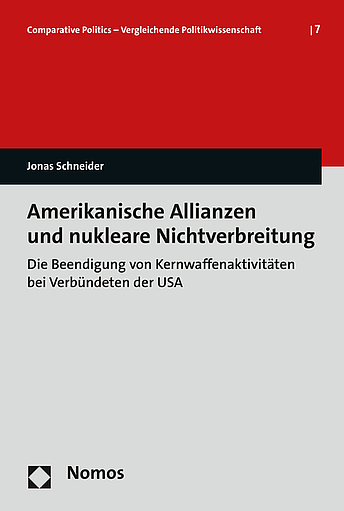englischJonas Schneider tackles a question that is of great interest both to scholars of nuclear proliferation and to practitioners of nonproliferation diplomacy: Why do some political leaders of U.S. allies agree to abandon their nation’s nuclear weapons activities, while others – who are often members of the same allied government and sometimes even of the same political party – steadfastly reject such a course reversal? Our existing stock of theories does not fare well in accounting for this important variation in leaders’ attitudes. To solve this puzzle, Schneider develops an innovative theory that draws on the individual status conceptions of allied political leaders. Subsequently, the author undertakes to test his theory using four thoroughly researched case studies, and he derives important lessons for international nonproliferation diplomacy toward the Middle East and Northeast Asia.
Jonas Schneider geht einer Frage nach, die für die Proliferationsforschung und ebenso für die praktische Nichtverbreitungspolitik hochrelevant ist: Warum stimmen manche außenpolitische Entscheidungsträger von amerikanischen Allianzpartnern einer Beendigung der Kernwaffenaktivitäten ihres Landes zu, während andere Entscheidungsträger – die oftmals derselben Regierung und manchmal sogar derselben Partei angehören – diesen Schritt strikt ablehnen? Herkömmliche Erklärungsansätze stoßen bei dieser Frage an ihre Grenzen. Um zu erklären, warum manche alliierte Entscheidungsträger in eine Beendigung ihrer Kernwaffenaktivitäten einwilligen und andere nicht, entwickelt Schneider eine innovative Theorie, die auf die individuellen Statusvorstellungen der Entscheidungsträger fokussiert. Er überprüft diese Theorie im Rahmen von vier detailliert recherchierten Länderfallstudien und zieht abschließend wichtige Schlussfolgerungen für die Nichtverbreitungspolitik im Mittleren Osten und in Nordostasien.


